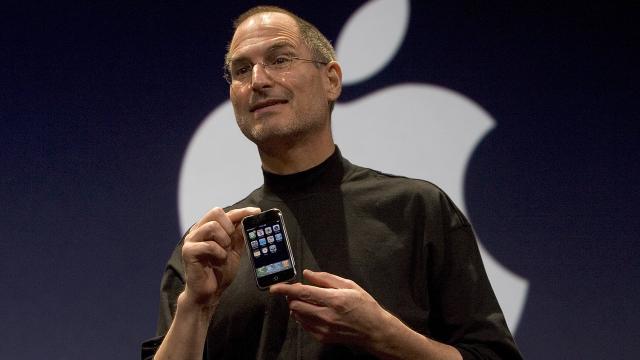Dilbert cartoonist Scott Adams recently posted an interesting question to Twitter. Adams shared a graph showing that the percentage of people between the age of 18 and 34 who live with their parents skyrocketed after 2008. Adams tweeted, “The iPhone was launched in 2007. Is it a coincidence?” The implication, of course, is that people are spending all their money on technology instead of buying homes or renting. But how reasonable is this theory?
The iPhone was launched in 2007. Is it a coincidence? https://t.co/VclcjnRQ8W
— Scott Adams (@ScottAdamsSays) September 27, 2018
In short, there’s no evidence that the introduction of the iPhone had anything to do with home ownership among people in their 20s and 30s. There are a lot of reasons that many Millennials have had to live with their parents, but the iPhone wasn’t one of them. It’d be a little like looking at a graph of rising unemployment in the 1930s and blaming radio.
It’s important not to confuse correlation with causation. You can point to everything from the beginning of the Great Recession of 2008 to stagnant wages, but blaming a $US1,000 ($1,387) phone is pretty damn silly. Anyone who tried to pay rent or buy a house by opting not to spend $US1,000 ($1,387) on a phone would be saving $US83 ($115) a month. The median rent for a one-bedroom apartment in the U.S. is currently $US1,209 ($1,677). The idea is idiotic on its face.
What’s actually keeping some millennials at home? One 2014 study for the Federal Reserve Bank of New York found that the largest factor was student debt:
Finally, we find that student loans deter independence: state-cohort groups who were more heavily reliant on student debt while in school are significantly and substantially more likely to move home to parents when living independently, and are significantly and substantially less likely to move away from parents when living at home.
Millennials are also delaying having children or not having them at all, another reason many people in their 20s and 30s don’t live in single-family dwellings with their own money. But again, there’s no evidence that this has anything to do with the iPhone.
Scott Adams is a great cartoonist but he has no idea what he’s talking about when it comes to the impact of technology on our housing choices. People love to blame our cultural obsession with technology for a number of different ills, and there’s no question that the iPhone and the internet have changed the way we live. But the iPhone isn’t keeping American Millennials from buying a home. Not even a little bit.
